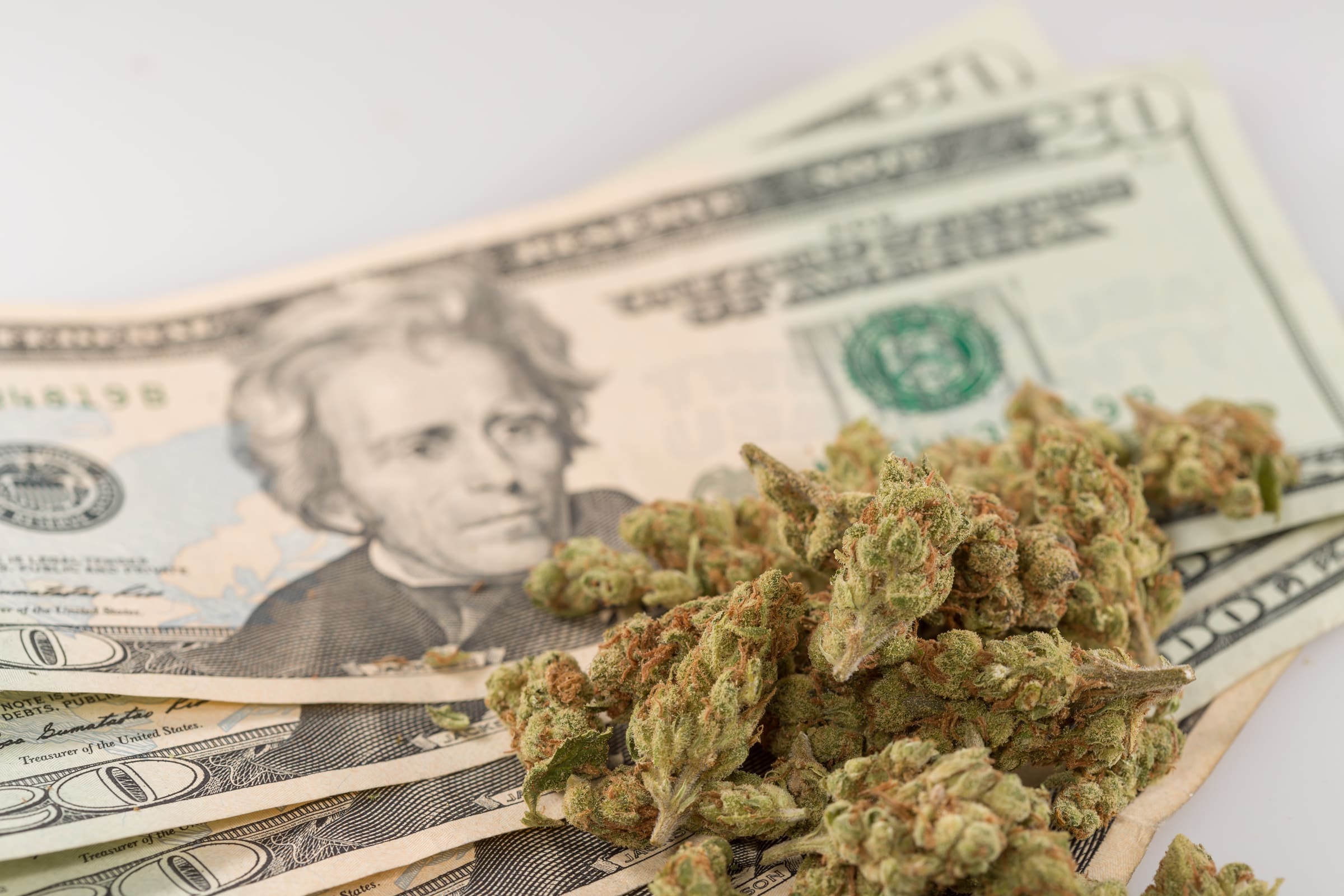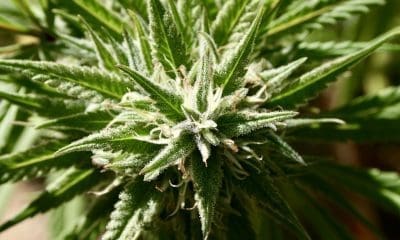Politics
Senators Could Vote On These Marijuana Tax Amendments This Week

U.S. senators are expected to consider two far-reaching marijuana amendments to a broad Republican-led tax bill being debated on the floor this week. Both measures are sponsored by GOP Sen. Cory Gardner of Colorado, and they concern the ability state-legal cannabis businesses to take tax deductions that are available to operators in other industries.
Under current federal law, a 1980s provision — known as 280E — effectively forces cannabis businesses to pay a much higher tax rate than other companies.
The statute was originally intended to to stop drug cartel leaders from writing off yachts and expensive cars, but today its language means that that growers, processors and sellers of marijuana — which is still a Schedule I substance under federal law — can’t take business expense deductions that are available to operators in other sectors.
As a result, cannabis businesses often pay an effective tax rate upwards of 65-75 percent, compared with a normal rate of around 15-30 percent.
The full text of both of Gardner’s measures are included below.
See Marijuana Moment’s earlier report on Gardner’s cannabis tax advocacy for background and context.
Gardner’s first amendment provides a simple exemption to the provision known as 280E for marijuana businesses that are operating in accordance with state laws:
______ SA 1609. Mr. GARDNER submitted an amendment intended to be proposed by him to the bill H.R. 1, to provide for reconciliation pursuant to titles II and V of the concurrent resolution on the budget for fiscal year 2018; which was ordered to lie on the table; as follows: At the end of part IV of subtitle C of title I, add the following: SEC. 13311. ALLOWANCE OF DEDUCTIONS AND CREDITS RELATING TO EXPENDITURES IN CONNECTION WITH MARIJUANA SALES CONDUCTED IN COMPLIANCE WITH STATE LAW. (a) In General.--Section 280E is amended by inserting before the period at the end the following: ``, unless such trade or business consists of marijuana sales conducted in compliance with State law''. (b) Effective Date.--The amendment made by this section shall apply with respect to taxable years ending after the date of the enactment of this Act. ______
Gardner’s second amendment is more complicated. It also provides the 280E fix for state-legal cannabis businesses, but requires that they meet a certain definition of “properly regulated” in order to qualify for the exemption:
______ SA 1639. Mr. GARDNER submitted an amendment intended to be proposed to amendment SA 1618 proposed by Mr. McConnell (for Mr. Hatch (for himself and Ms. Murkowski)) to the bill H.R. 1, to provide for reconciliation pursuant to titles II and V of the concurrent resolution on the budget for fiscal year 2018; which was ordered to lie on the table; as follows: At the appropriate place, insert the following: SEC. __. EXCEPTION FOR EXPENDITURES IN CONNECTION WITH CERTAIN CANNABIS RELATED TRADES OR BUSINESSES. (a) In General.--Section 280E of the Internal Revenue Code of 1986 is amended-- (1) by striking ``drugs'' and all that follows through ``No deduction'' and inserting ``drugs ``(a) General Rule.--Except as provided in subsection (b), no deduction''; and (2) by adding at the end the following: ``(b) Exception for Certain Cannabis Related Trades or Businesses.-- ``(1) Exclusion from trafficking.--Those activities undertaken in connection with a qualified cannabis trade or business shall not be considered trafficking in controlled substances for purposes of subsection (a). ``(2) Definitions.--For purposes of this subsection: ``(A) Cannabis related trade or business.--The term `cannabis related trade or business' means a trade or business that earns cannabis related income. ``(B) Cannabis related income.--The term `cannabis related income' means any income earned from the manufacture, production, cultivation, processing, refinement, transportation and delivery, distribution, testing, use, sale, or exchange of cannabis or cannabis-derived materials. ``(C) Qualified cannabis related trade or business.--The term `qualified cannabis related trade or business' means a cannabis related trade or business that meets the following requirements: ``(i) The activities giving rise to the cannabis related income of the trade or business are properly regulated under the laws of the State in which they are conducted. ``(ii) No cannabis or cannabis-derived materials owned by the trade or business are sold, exchanged, provided free of charge, gifted, donated, sampled, embedded in the sale of another item, embedded within the provision of a service, or otherwise transferred in a manner that does not give rise to cannabis related income. ``(iii) None of the activities of the trade or business are trafficking in controlled substances other than cannabis or cannabis-derived materials regulated under State law. ``(iv) To the extent that the cannabis related trade or business was in existence prior to the date of enactment of this subsection, the person who held or controlled a license described in paragraph (3)(A) in taxable years ending before such date of enactment has not had a cannabis license revoked by State licensing authorities. ``(3) Properly regulated.--The term `properly regulated' means, with respect to a qualified cannabis related trade or business, the following: ``(A) Persons engaged in the activities giving rise to the cannabis related gross receipts are licensed by the State in which they conduct such activities and such license is subject to periodic renewal. ``(B) State licensing rules impose limitations on the production and distribution of cannabis and items derived from cannabis. ``(C) State licensing rules restrict the distribution of cannabis and items derived from cannabis to minors, including-- ``(i) a minimum age on legal purchases of 18; and ``(ii) restrictions on advertising, marketing ,and promotional activities that are at least as stringent as those imposed on alcohol products in the State. ``(D) Sufficient books and records are employed by the cannabis related trade or business-- ``(i) to enable the seed to sale identification of all the cannabis or cannabis derived materials owned or used in connection with the manufacturing, production, growth, processing, refinement, distribution, testing, use, sale, or exchange activities of the cannabis related trade or business; and ``(ii) to enable the association of the income of the cannabis trade or business with the cannabis or cannabis derived materials identified in accordance with clause (i). ``(E) Personal use exemptions to the State licensing requirements, if any, contain limitations similar to those contained in section 5053(e), applied-- ``(i) by limiting the definition of any permissible transfer to another person, whether by sale, exchange, gift, sharing, concurrent use, or otherwise, to transfers between the persons who constitute family members within the meaning of section 267(c)(4) and who are not minors; and ``(ii) by substituting 8 plants for 200 gallons in each place it appears for applying a household limitation involving more than 1 adult and 4 plants for 100 gallons in each place it appears for applying a household limitation involving only 1 adult. ``(F) State licensing rules limit caregiver, agency, designation arrangements, cooperative agreements, or any other arrangement involving cannabis or cannabis derived materials purporting not to involve a trade or business to 8 plants per patient or person per calendar year. ``(4) Application to persons engaged in more than one trade or business.--The activities of all persons who are related parties within the meaning of section 52 shall be taken into account in applying this subsection.''. (b) Effective Date.--The amendments made by this section shall apply with respect to taxable years ending after the date of the enactment of this Act. ______
One or both of the Gardner amendments are expected to be considered as part of a so-called “vote-a-rama” on the Senate floor late Thursday or on Friday.
















